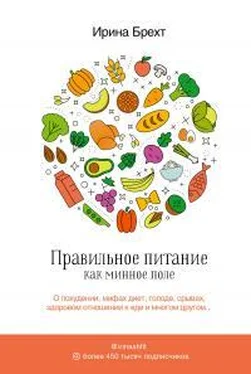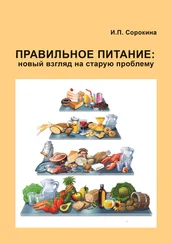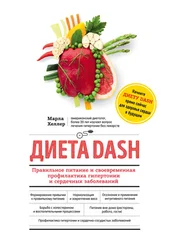82. Alhassan S, Kim S, Bersamin A, et al. Dietary adherence and weight loss success among overweight women: results from the A TO Z weight loss study. Int J Obes (Lond) 2008; 32:985.
83. Del Corral P, Chandler-Laney PC, Casazza K, et al. Effect of dietary adherence with or without exercise on weight loss: a mechanistic approach to a global problem. J Clin Endocrinol Metab 2009; 94:1602.
84. Westman EC. Is dietary carbohydrate essential for human nutrition? Am J Clin Nutr. 2002 May; 75(5):951—3; author reply 953—4
85. Zaman SA, Sarbini SR. The potential of resistant starch as a prebiotic. Crit Rev Biotechnol. 2016;36(3):578—84. doi: 10.3109/07388551.2014.993590.
86. Satya S. Jonnalagadda et al. Putting the Whole Grain Puzzle Together: Health Benefits Associated with Whole Grains – Summary of American Society for Nutrition 2010 Satellite Symposium. J Nutr. 2011 May; 141(5): 1011S—1022S.
87. Sun SZ, Empie MW. Fructose metabolism in humans – what isotopic tracer studies tell us. Nutrition & Metabolism. 2012;9:89. doi:10.1186/1743—7075—9-89.
88. Chung M et al. Fructose, high-fructose corn syrup, sucrose, and nonalcoholic fatty liver disease or indexes of liver health: a systematic review and meta-analysis. Am J Clin Nutr. 2014 Sep;100(3):833—49. doi: 10.3945/ajcn.114.086314.
89. Van Buul VJ, Tappy L, Brouns FJPH. Misconceptions about fructose-containing sugars and their role in the obesity epidemic. Nutrition Research Reviews. 2014;27(1):119–130. doi:10.1017/S0954422414000067.
90. Sievenpiper JL et al. Effect of fructose on body weight in controlled feeding trials: a systematic review and meta-analysis. Ann Intern Med. 2012 Feb 21;156(4):291–304. doi: 10.7326/0003—4819—156—4-201202210—00007.
91. Havel PJ. Dietary fructose: implications for dysregulation of energy homeostasis and lipid/carbohydrate metabolism. Nutr Rev 63: 133–157, 2005.
92. Holness MJ, Cook EB, and Sugden MC. Regulation of hepatic fructose 2,6-bisphosphate concentrations and lipogenesis after re-feeding in euthyroid and hyperthyroid rats. A regulatory role for glycogenesis. Biochem J 252: 357–362, 1988.
93. United States Department of Agriculture. Economic Research Service. The ERS Food Availability (Per Capita) Data System. Sugar and sweeteners (added) Last updated: Wednesday, January 17, 2018 https://www.ers.usda.gov/data-products/food-availability-per-capita-data-system/food-availability-per-capita-data-system/#Food%20Availability
94. Cynthia L. Ogden, Ph.D.; Margaret D. Carroll, M.S.P.H.; Cheryl D. Fryar, M.S.P.H.; and Katherine M. Flegal, Ph.D. Prevalence of Obesity among Adults and Youth: United States, 2011–2014. NCHS Data Brief No. 219, November 2015
95. Saleh J, Al-Wardy N, Farhan H, Al-Khanbashi M, Cianflone K. Acylation stimulating protein: a female lipogenic factor? Obes Rev. 2011 Jun;12(6):440—8. doi: 10.1111/j.1467—789X.2010.00832.x.
96. Ian A Macdonald, Susan A Lanham-New & Helen M Roche. Nutrition and Metabolism. 2nd Edition. Wiley-Blackwell.
97. Laura Chiavaroli et al. Effect of pasta in the context of low-glycaemic index dietary patterns on body weight and markers of adiposity: a systematic review and meta-analysis of randomised controlled trials in adults. BMJ Open. 2018 Apr 2;8(3):e019438. doi: 10.1136/bmjopen-2017—019438.
98. Roberts, Megan N. et al. A Ketogenic Diet Extends Longevity and Healthspan in Adult Mice. Cell Metabolism, Volume 26, Issue 3, 539–546.e5
99. Newman, John C. et al. Ketogenic Diet Reduces Midlife Mortality and Improves Memory in Aging Mice. Cell Metabolism, Volume 26, Issue 3, 547–557.e8
100. Gibson AA, Seimon RV, Lee CM, Ayre J, Franklin J, Markovic TP, Caterson ID, Sainsbury A. Do ketogenic diets really suppress appetite? A systematic review and meta-analysis. Obes Rev. 2015 Jan;16(1):64–76. doi: 10.1111/obr.12230
101. Kahn R, Sievenpiper JL. Dietary sugar and body weight: have we reached a crisis in the epidemic of obesity and diabetes?: we have, but the pox on sugar is overwrought and overworked. Diabetes Care. 2014 Apr;37(4):957—62. doi: 10.2337/dc13—2506.
102. Evans K, Clark ML, Frayn KN. Effects of an oral and intravenous fat load on adipose tissue and forearm lipid metabolism. Am J Physiol. 1999 Feb;276(2 Pt 1):E241—8.
103. Abdullah S Al-Goblan et al. Mechanism linking diabetes mellitus and obesity. Diabetes Metab Syndr Obes. 10.2147/DMSO.S67400
104. Hellerstein, Marc. (1999). De novo lipogenesis in humans: Metabolic and regulatory aspects. European journal of clinical nutrition. 53 Suppl 1. S53—65. 10.1038/sj.ejcn.1600744.
105. Dinicolantonio, James & O’Keefe, James & Wilson, William. (2017). Sugar addiction: Is it real? A narrative review. British Journal of Sports Medicine. 52. bjsports-2017. 10.1136/bjsports-2017—097971.
106. Volkow ND, Wang G-J, Tomasi D, Baler RD. Pro v Con Reviews: Is Food Addictive?: Obesity and addiction: neurobiological overlaps. Obesity reviews: an official journal of the International Association for the Study of Obesity. 2013;14(1):2—18. doi:10.1111/j.1467—789X.2012.01031.x.
107. Benton D. The plausibility of sugar addiction and its role in obesity and eating disorders. Clin Nutr. 2010 Jun;29(3):288–303. doi: 10.1016/j.clnu.2009.12.001.
108. Markus CR et al. Eating dependence and weight gain; no human evidence for a ‘sugar-addiction’ model of overweight. Appetite. 2017 Jul 1;114:64–72. doi: 10.1016/j.appet.2017.03.024.
109. Westwater ML, Fletcher PC, Ziauddeen H. Sugar addiction: the state of the science. European Journal of Nutrition. 2016;55(Suppl 2):55–69. doi:10.1007/s00394—016—1229—6.
110. Mansoor N et al. Effects of low-carbohydrate diets v. low-fat diets on body weight and cardiovascular risk factors: a meta-analysis of randomised controlled trials. Br J Nutr. 2016 Feb 14;115(3):466—79. doi: 10.1017/S0007114515004699.
111. Hu T, Mills KT, Yao L, et al. Effects of Low-Carbohydrate Diets Versus Low-Fat Diets on Metabolic Risk Factors: A Meta-Analysis of Randomized Controlled Clinical Trials. American Journal of Epidemiology. 2012;176(Suppl 7):S44-S54. doi:10.1093/aje/kws264.
112. Sackner-Bernstein J, Kanter D, Kaul S. Dietary Intervention for Overweight and Obese Adults: Comparison of Low-Carbohydrate and Low-Fat Diets. A Meta-Analysis. Siegel A, ed. PLoS ONE. 2015;10(10):e0139817. doi:10.1371/journal.pone.0139817.
113. Bueno NB et al. Very-low-carbohydrate ketogenic diet v. low-fat diet for long-term weight loss: a meta-analysis of randomised controlled trials. Br J Nutr. 2013 Oct;110(7):1178—87. doi: 10.1017/S0007114513000548
114. Paoli A, Bosco G, Camporesi EM, Mangar D. Ketosis, ketogenic diet and food intake control: a complex relationship. Frontiers in Psychology. 2015;6:27. doi:10.3389/fpsyg.2015.00027.
115. Nicole M. Avena, Pedro Rada, Bartley G. Hoebel. Evidence for sugar addiction: Behavioral and neurochemical effects of intermittent, excessive sugar intake. Neuroscience and Biobehavioral Reviews 32 (2008) 20—39
116. Hernandez L, Hoebel BG. Food reward and cocaine increase extracellular dopamine in the nucleus accumbens as measured by microdialysis. Life Sci. 1988;42(18):1705—12.
117. Shalev U, Grimm JW, Shaham Y. Neurobiology of relapse to heroin and cocaine seeking: a review. Pharmacol Rev. 2002 Mar; 54(1):1—42.
118. Holt SH et al. A satiety index of common foods. Eur J Clin Nutr. 1995 Sep;49(9):675—90.
119. Hebebrand J et al. “Eating addiction”, rather than “food addiction”, better captures addictive-like eating behavior. Neuroscience & Biobehavioral Reviews. Volume 47, November 2014, Pages 295—306
120. Rogers PJ, Smit HJ. Food craving and food «addiction»: a critical review of the evidence from a biopsychosocial perspective. Pharmacol Biochem Behav. 2000 May;66(1):3—14.
Читать дальше
Конец ознакомительного отрывка
Купить книгу












